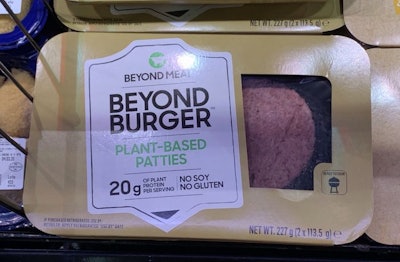
A few days ago, I had a conversation with a friend from Mexico. She was excited about her fixing a delicious meal. While asking what she was preparing, she said: "Oh, I know you’re going to kill me, but I love Beyond Burgers.' They taste really good when they are broiled, they have a wonderful texture and even that reddish color of meat that they provide with beets!"
I have the sense that she cried before being hurt, knowing that I work for the industry, but she had a point. She spewed out all the good things people like in meat that you can find in that product.
I have spoken out about meat alternatives in several blogs and articles. First, it was my curiosity to see the evolution of these products and then my astonishment, to both the technology and the silence of the meat and poultry industries.
These smart solutions - ranking from cellular agriculture to vegetable options - are according to some experts, aimed to not needing animals in a 15-year time span. This does not mean that we will stop raising animals, but that these alternatives will take a big chunk of the market.
Technology is evolving step by step - including fat, that provides taste and texture. But the taste of the general public is evolving too, along with the attributes of being natural, very low or null carbon footprint, not killing animals, and so on. And Latin America is not an exception, particularly, the middle class and beyond, those that can afford to buy meat and meat products… and expensive alternative products too. Beef might be the big loser, but poultry will also lose.
This might seem like a silly example, but I am sure is not the only one. This is the case of a middle-age, middle-class, professional, Mexican woman. Just as many other Mexicans. And as I heard in a recent webinar, today people might still ask what the products are made of, but in the end, they might not and will simply consume them. Think of frankfurters. Nowadays few really care what are they made of.
On the other hand, the aloofness of the industry is also astonishing. It is not a matter of fighting back or against something. It is of promoting our products with all the good things they carry and all the improvements that have been made in efficiency, environment, energy, animal welfare and so on.
What do you think?
















